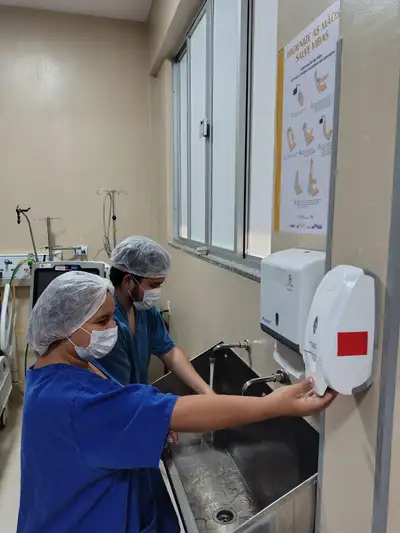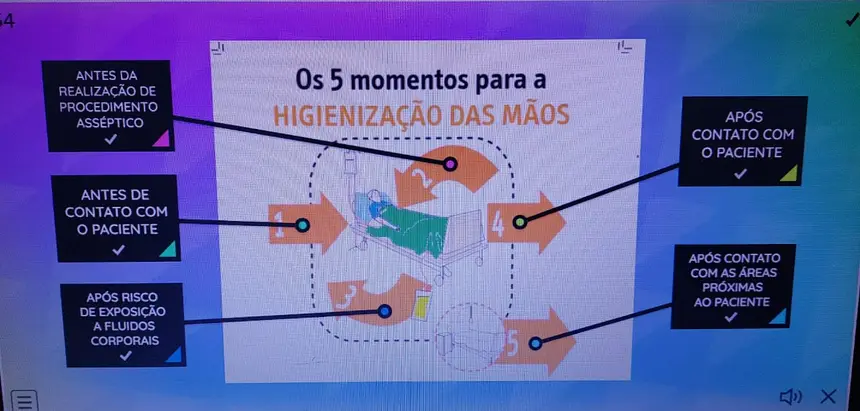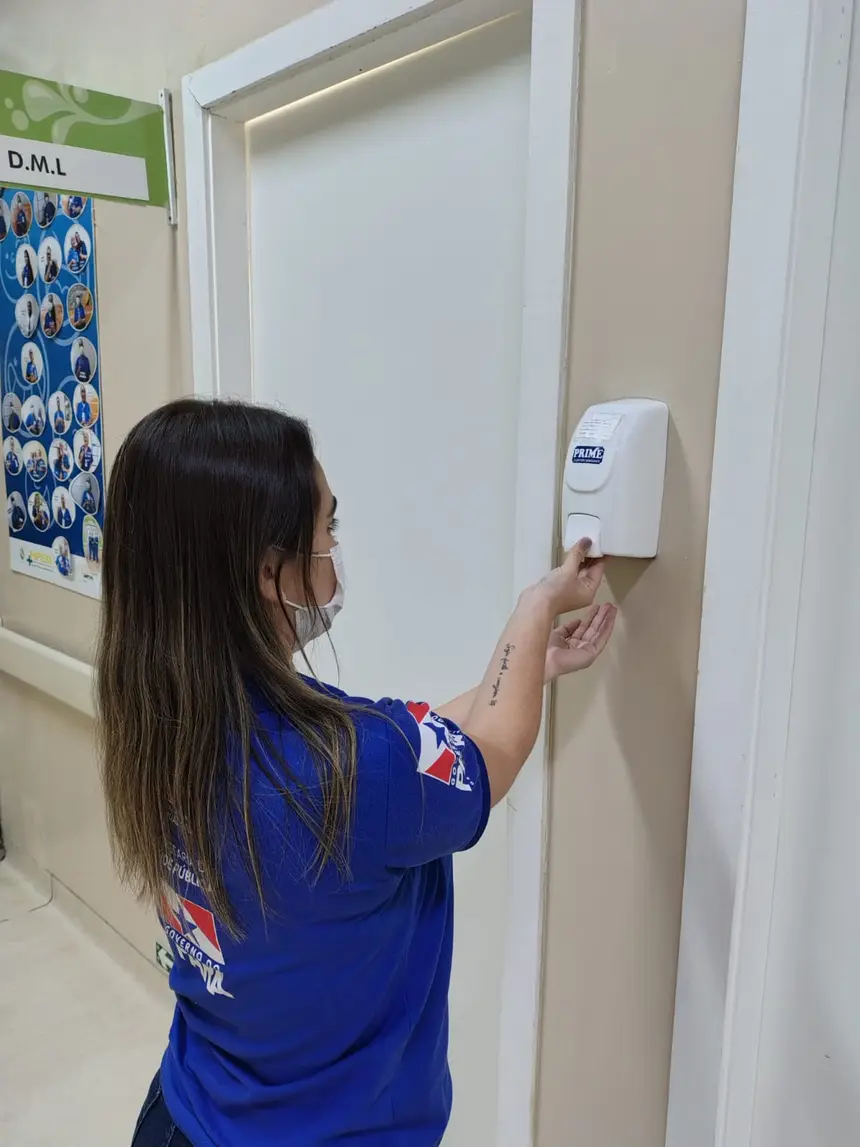Galileu Hospital strengthens infection prevention protocols
With rigorous protocols and trained staff, the unit seeks to ensure patient safety and reduce Healthcare-Associated Infections (HAIs).

The Galileu State Public Hospital (HPEG), in Greater Belém, continuously implements actions for infection prevention and control, focusing on patient well-being. The institution adopts rigorous protocols and promotes regular training for its teams, aiming to reduce the risks of Healthcare-Associated Infections (HAIs), which are essential to ensure patient safety.
According to Jéssica Barbosa, a nurse at the unit and a member of the Hospital Infection Control Committee (CCIH), prevention is a continuous priority. "Our team is committed to ensuring that from admission to discharge, the patient has a safe and infection-free experience. We implement effective strategies to minimize risks," she states.
The most common infections are associated with the use of invasive devices, such as catheters, mechanical ventilation, and surgical procedures. For Jéssica, vigilance is essential for the strict compliance with safety protocols. "Each device and procedure requires special attention. Our team is constantly trained to minimize risks," she reinforces.
Prevention strategies and practices
Under the management of the Amazon Social and Environmental Health Institute (ISSAA), in partnership with the State Department of Public Health (Sespa), Galileu Hospital has qualified nursing professionals who are part of the Hospital Infection Control Committee (CCIH) and play a vital role in preventing infections.

"We conduct thorough assessments to identify risk factors, such as immunosuppression or the presence of wounds. The CCIH, composed of specialized nurses, applies strict precautions, constantly monitors the patient's health, and provides detailed guidance to companions on necessary care, ensuring that all preventive measures are followed accurately," explains nurse Jéssica.
The unit adopts daily protection practices, including careful assessment of invasive devices and rigorous monitoring of catheter and probe placements. "We perform regular cleanings of terminal and concurrent areas, and the team follows strict protocols for the use of Personal Protective Equipment (PPE). Hand hygiene is one of the pillars of this strategy, being monitored at all five moments of hygiene," the professional states.
Additionally, the hospital provides guidance forms, distributed both at the outpatient and inpatient levels, aimed at patients and companions. "These forms emphasize essential practices, such as the importance of hand hygiene, safe surgery, and specific care in areas like orthopedics, urology, and thoracic surgery. Guidance is also provided at the bedside, focusing on preserving patient health and the proper management of devices and dressings to prevent infections," concludes Jéssica.
Service: The Galileu State Public Hospital, managed by the Amazon Social and Environmental Health Institute (ISSAA), in partnership with the State Department of Public Health (Sespa), has 104 inpatient beds and offers specialized services, such as bone reconstruction and elongation, trachea surgeries, and urological procedures, including treatment for benign prostatic hyperplasia, renal exclusion, and prostate biopsy screening.
Text: Roberta Paraense










